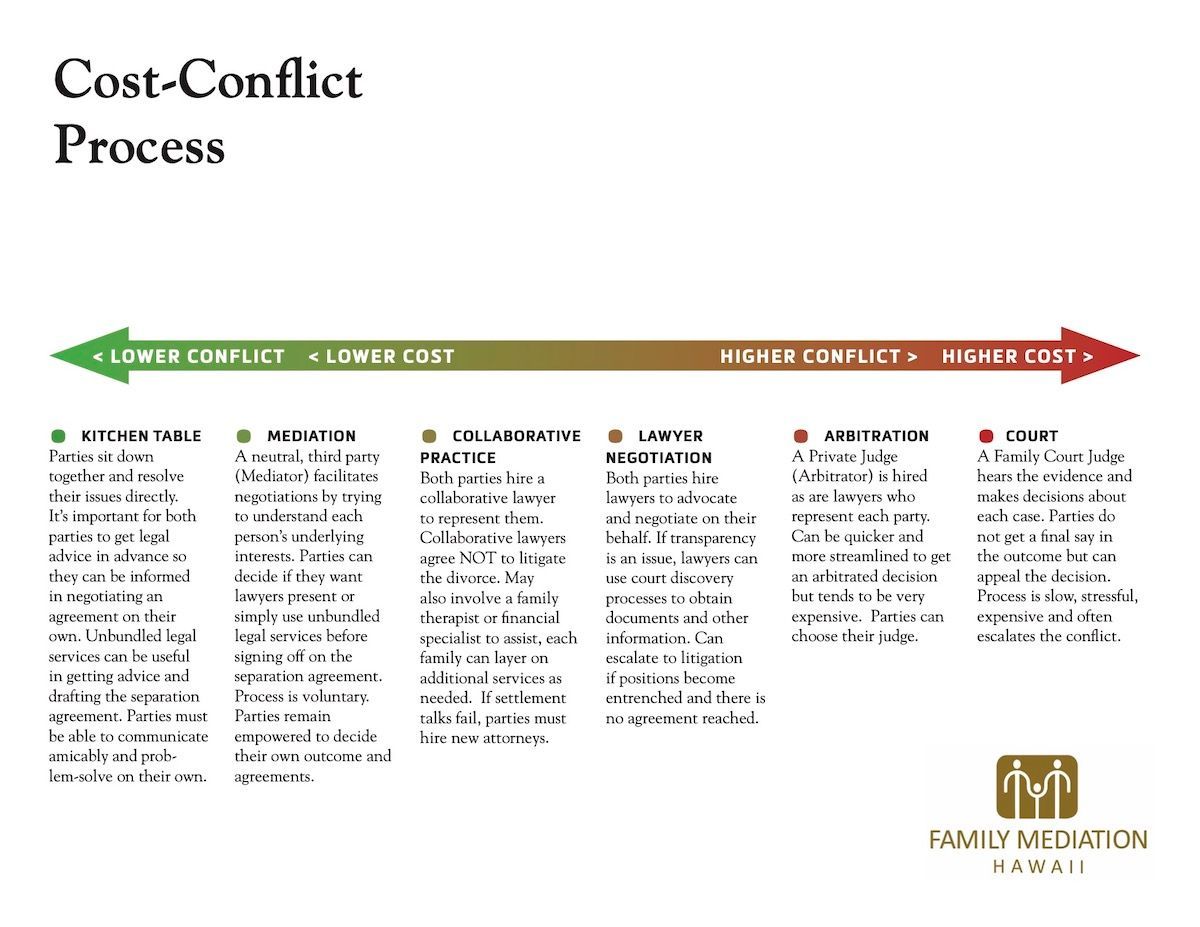Co-parenting During the Holidays
A Mediator's Perspective on Holiday Co-Parenting

Holiday Harmony: A Divorce Mediator’s Guide to Successful Co-Parenting
As a family mediator, I’ve seen how the holiday season can amplify co-parenting challenges. Twinkling lights and festive music that evoke joy can also cast shadows of stress and uncertainty for divorced or separated parents. Here’s what I’ve learned from some remarkable families navigating these challenges with goodwill and grace:
The Gift of Child-Centric Planning
In mediation, we emphasize putting children first. It’s not about dividing time equally but creating joyful experiences for our keiki. Parents should ask, “What will make this holiday special for our kids?” rather than, “How do I get my fair share of time?”
I recall a couple who initially fought bitterly over Christmas. When I asked them to imagine their children’s ideal holiday, they realized the kids were most excited about Christmas morning. This led them to establish a new tradition: a special Christmas Eve dinner with one parent and a magical Christmas morning with the other, alternating each year.
Unwrapping Clear Communication
Clear, early communication ties everything together. Parents should start holiday discussions early, long before seasonal pressures set in. Last-minute planning typically leads to conflict. A shared digital calendar can be a game-changer, allowing parents to discuss plans in advance and reduce misunderstandings.
One family I worked with held semi-annual co-parenting meetings to plan for the year. The mother noted, “We’re such better parents when we can explain to our children what to expect.”
The Most Valuable Currency
Flexibility is often the most valuable currency in mediation. The ability to adapt can transform the holiday experience.
One father, initially devastated about not having his children on Christmas Day, embraced celebrating “Christmas” on December 23rd. To his surprise, his kids loved having two Christmas mornings, and he found joy in creating new traditions.
Emotional Self-Care: The Unsung Hero of Co-Parenting
Parents who manage their emotions effectively navigate holiday challenges better. It’s normal to feel a range of emotions during this time, but how those feelings are processed matters. Creating a support network and new traditions for when they’re not with their children can help.
One mother took a holiday trip with girlfriends in alternating years when she didn’t have her children.
The Balancing Act of Involving Children
Involving children in holiday planning can be beneficial but requires balance. Kids shouldn’t feel burdened with adult decisions, but age-appropriate choices help them feel secure and valued.
One set of parents asked their kids to suggest new traditions for each household post-divorce. A gingerbread house competition and Christmas movie marathon became beloved new parts of their holiday celebrations.
Extended Family: The Supporting Cast
Managing extended family often presents hidden challenges in holiday co-parenting. Parents should have open conversations with relatives and set clear boundaries, ensuring that negative talk about the child’s other parent is off-limits.
In one case, tension between grandparents caused stress for the family. We devised a plan for both sets of grandparents to attend a school holiday concert, creating a neutral, child-focused event where everyone could celebrate together.
The Power of Shared Moments
While it may not be suitable for all situations, I’ve seen remarkable outcomes when parents share holiday moments. Even brief periods of coming together can profoundly impact children.
One family began a tradition of both parents having breakfast with the children on Christmas morning, which the kids often mention as their favorite part of the holidays. They loved seeing their parents cooperate and share in their joy.
Keeping Perspective: It’s a Season, Not a Lifetime
The holidays are just a small part of the year. Your overall co-parenting relationship and children's long-term well-being are what truly matter. Each family is unique. Finding what works best for you, your co-parent, and your children is a journey. As you navigate this holiday season, focus on creating positive memories. In the end, that’s the greatest gift any parent can give their child.












